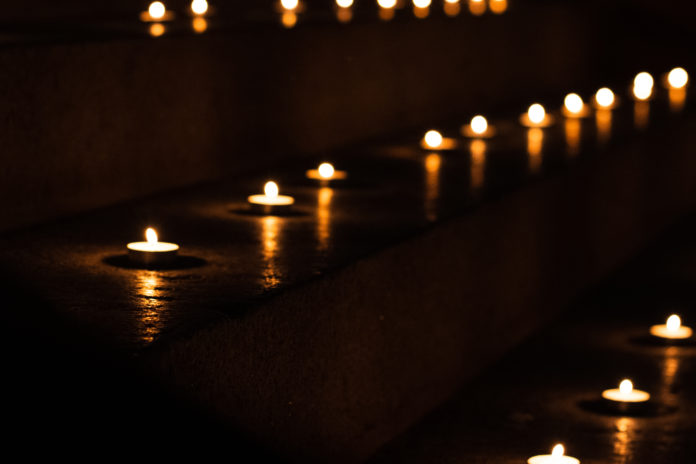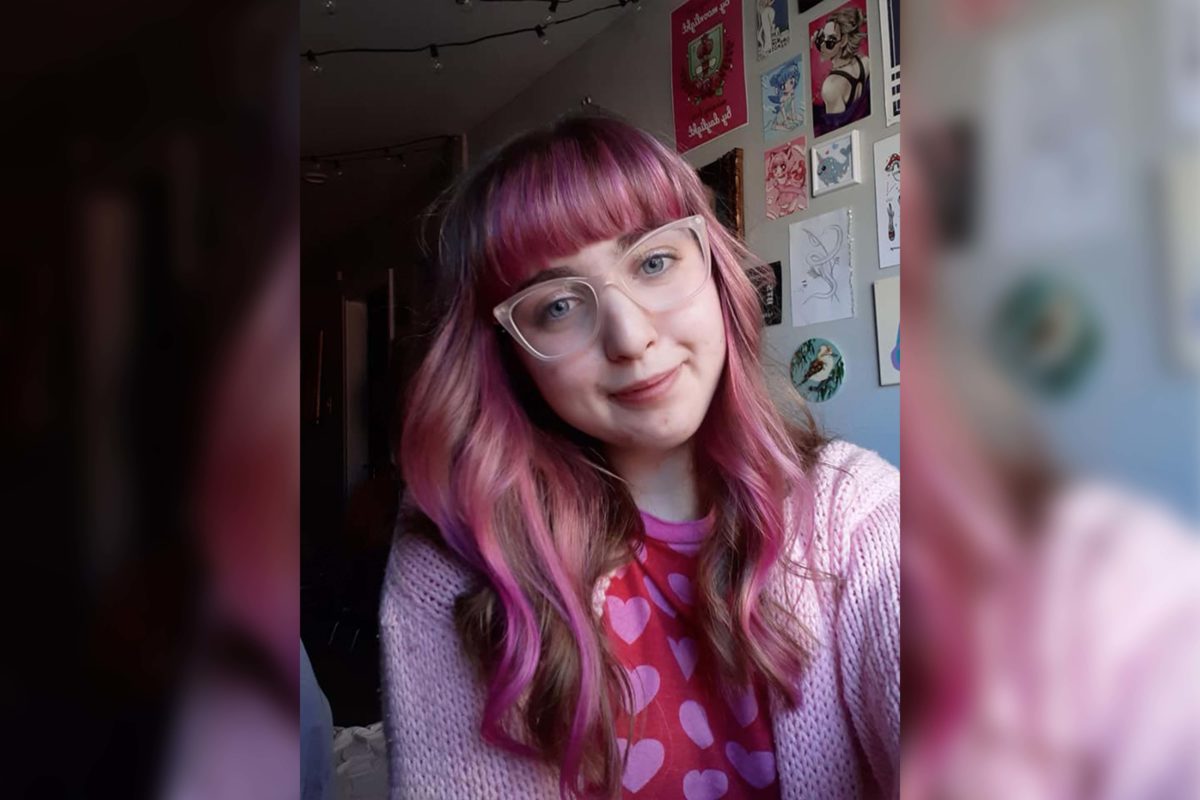
Around 50 people sat in Kinsella Auditorium on St. Thomas University’s campus last Saturday for the Transgender Day of Remembrance ceremony.
Another 20 people joined through the Facebook live stream.
Transgender Day of Remembrance was started by Gwendolyn Ann Smith on Nov. 20, 1999, in honour of her friend Rita Hester.
Sofia Mehlitz, internal coordinator for the 203 Centre for gender and sexual diversity at the University of New Brunswick, said Hester was a transgender woman who was murdered in her apartment by an unknown assailant in Boston, Massachusetts. Smith wanted to mourn Hester’s death, but also celebrate her life.
Since 1999, their tradition spread worldwide.
“Transgender Day of Remembrance is a day to remember and celebrate and mourn the lives of transgender individuals who have lost their lives to transphobia or anti-trans violence throughout a year period,” said Mehlitz.
Trans Lives Matter keeps a record of transgender folks who died due to transphobia called Remembering Our Dead. Mehlitz said the record includes the individual’s name, picture, cause of death, age and location.
“Transgender Day of Remembrance is a time to say their names, remember them, remember that we have a lot more work to do in eliminating transphobia and reducing discrimination within the trans community,” said Mehlitz.
But, they said it’s also a day to celebrate their lives and to remember those who’ve died.

This year, the 203 Centre, in partnership with STU Students’ Union and UNB Students’ Union, hosted the Transgender Day of Remembrance ceremony.
Mehlitz said the 203 Centre took the lead on the ceremony and both university students’ unions joined for extra support and to help run the event and promote it.
“It gives the opportunity for the students’ unions to show their support for trans folks and the people within the university for whom this event is really important,” they said.
The ceremony was an hour long and welcomed three guest speakers who gave messages about what being transgender means to them and their experiences, said Mehlitz.
“We had one speaker share a slam poem … it was so emotional and super impactful,” said Mehlitz. “I think it really encapsulated why we do this and why we take the time out of our day to remember the names.”
The other two guest speakers shared their life story, their struggles and the discrimination they faced. Mehlitz said it brought to life the reality of violence and discrimination transgender folks experience in New Brunswick.
After the speakers, the video of names was presented and then a moment of silence for those who died.
“It means a lot more when you see the people behind the name. Saying their names is really important but also understanding that these are real people with families and friends and jobs who were just trying to exist,” said Mehlitz.
A vigil was also set up at City Hall in downtown Fredericton by Fierté Fredericton Pride.
There were tea light candles lighting up the front step of City Hall. Mehlitz said at the front of the steps was a see-through poster board where the tea lights shined through. The poster board had all the names of the individuals who lost their lives within the year.
Mehlitz said while the recording of those who died is not consistent in a lot of places – there have been 461 individuals globally recorded. Most of them happened in Brazil, 96 per cent of those individuals were transgender women and most of them were people of colour.
This number is as of Nov. 19 and is measured from the previous year’s Transgender Day of Remembrance on Nov. 20.
Mehlitz said it’s important to recognize that trans-feminine and transgender women are at a greater disadvantage for violence.
“I think a lot of people outside of the trans community don’t get to hear stories like this and don’t understand stories like this … when people come and listen and take the time, that’s how we make change,” they said.
Mehlitz said the 203 Centre serves the tri-campus community, so anyone from STU, UNB or the N.B. Community College can visit their location in the Student Union Building at UNB.
They said their position at the 203 Centre deals with looking after the physical space of the centre, managing volunteers and planning events. They also work alongside their co-coordinator to outreach.
“The centre serves as a safer space on campus for queer and trans folks to study, hang out [and] access resources,” said Mehlitz. “We have peer mentors in the space at all times.”
The centre also has a queer library, resource shelf, couches, study tables and colouring supplies.
Mehlitz said they host events both inside and outside of the centre. Sometimes these events are hosted in collaboration with other groups on campus, such as the UNBSU, STUSU and the Women’s Centre.
“I love this job so much and I love working with the volunteers and getting to interact with so many queer and trans students,” said Mehlitz. “It really makes me feel like I have a safe space on campus and a place where I belong and I hope that effect is the same for others.”
Mehlitz said there was a lot of great support at the ceremony.
“We, as the trans community, can’t do it all ourselves. We need allies and we need people standing behind us to make change as well.”
